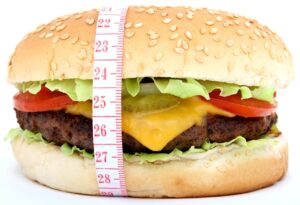Effective Low-Carb Diet for Weight Loss – In a world where the battle of the bulge never seems to end, the quest for effective weight loss methods continues to evolve. One approach that has gained significant popularity in recent years is the low-carb diet. This article explores the ins and outs of the effective low-carb diet for weight loss, shedding light on its principles, benefits, and how to get started on your own low-carb journey.
Introduction
When it comes to weight loss, one size does not fit all. However, the low-carb diet has emerged as a powerful tool for shedding pounds effectively. In this article, we’ll delve into the nuances of the low-carb diet, helping you understand how it works, its benefits, and how to get started on your own journey towards a healthier you.
Understanding the Low-Carb Diet
What Are Carbohydrates?
Carbohydrates, often referred to as carbs, are one of the three primary macronutrients, along with fats and proteins. They are found in various foods such as grains, fruits, vegetables, and legumes. Carbohydrates are the body’s primary source of energy, but they can also contribute to weight gain if consumed excessively.
The Science Behind Low-Carb
A low-carb diet restricts the intake of carbohydrates, forcing the body to rely on alternative energy sources, primarily fat. This metabolic shift can lead to weight loss, as the body starts burning stored fat for energy.
Benefits of a Low-Carb Diet
Weight Loss
One of the most compelling benefits of a low-carb diet is its ability to facilitate weight loss. By reducing carb intake, insulin levels remain stable, and the body burns fat more efficiently.
Improved Blood Sugar Control
Low-carb diets can help regulate blood sugar levels, making them an excellent choice for individuals with diabetes or those at risk of developing it.
Enhanced Heart Health
Studies suggest that low-carb diets can improve heart health by reducing triglycerides and increasing “good” HDL cholesterol levels.
Increased Energy Levels
Many low-carb dieters report increased energy levels and improved mental clarity, thanks to the steady release of energy from fats.
Types of Low-Carb Diets
Keto Diet
The ketogenic (keto) diet is an ultra-low-carb diet that pushes the body into a state of ketosis, where it burns fat for fuel.
Atkins Diet
The Atkins diet is a low-carb diet that involves multiple phases, gradually reintroducing carbs as you progress.
Paleo Diet
The paleo diet focuses on whole, unprocessed foods and limits processed carbs, emphasizing a more natural way of eating.
How to Start a Low-Carb Diet
Setting Clear Goals
Before embarking on a low-carb journey, define your goals. Are you aiming for weight loss, better blood sugar control, or improved overall health?
Choosing the Right Foods
Selecting the right foods is crucial. Opt for whole foods, including lean proteins, non-starchy vegetables, and healthy fats.
Meal Planning
Plan your meals in advance to ensure you stay on track. This can help prevent impulsive carb-heavy choices.
Monitoring Your Progress
Keep a journal to track your progress, noting any changes in weight, energy levels, and overall well-being.
Challenges and Pitfalls
Keto Flu
Some individuals may experience flu-like symptoms during the initial phase of a low-carb diet, known as the “keto flu.”
Social Challenges
Eating low-carb in a carb-centric world can be socially challenging, but it’s not impossible.
Low-Carb Diet Success Stories
Hear real-life success stories from individuals who have transformed their lives through a low-carb diet.
Incorporating Exercise
Discover how exercise can complement your low-carb eating plan for even more significant results.
Staying Committed
Maintaining a positive mindset and finding motivation can be the keys to long-term success on a low-carb diet.
Sample Low-Carb Meal Plan
Get a glimpse of what a typical day on a low-carb diet might look like.
Delicious Low-Carb Recipes
Explore mouthwatering recipes that make low-carb eating both satisfying and delicious.
Supplements for Low-Carb Dieters
Learn about essential supplements that can support your health on a low-carb diet.
Consulting a Healthcare Professional
Before starting any new diet, it’s wise to consult with a healthcare professional, especially if you have underlying health conditions.
Conclusion
In conclusion, the low-carb diet offers a powerful and effective approach to weight loss and improved health. By understanding the science, setting clear goals, and making informed food choices, you can embark on a low-carb journey that transforms your life. Remember, consulting with a healthcare professional is always a wise step before making significant dietary changes.
Frequently Asked Questions
- Is a low-carb diet suitable for everyone?
- Explore who can benefit most from a low-carb diet and who should avoid it.
- How quickly can I expect to see results on a low-carb diet?
- Discover the timeline for weight loss and other health improvements.
- What are some common low-carb diet misconceptions?
- Debunking myths and clarifying common misunderstandings about low-carb diets.
- Can I cheat occasionally on a low-carb diet?
- Learn about cheat days and their potential impact on your progress.
- Are there any long-term health concerns with a low-carb diet?



